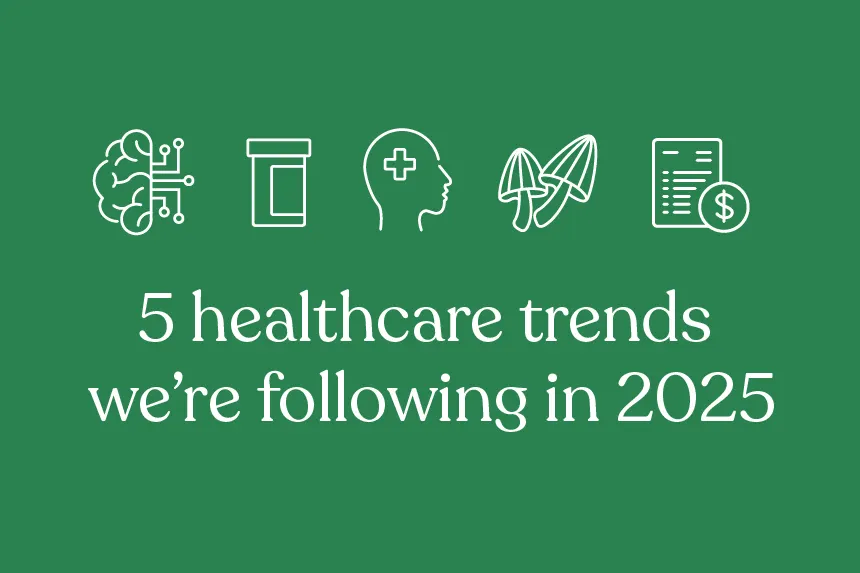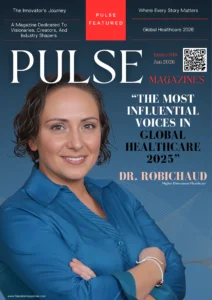Now Reading: Latest Trends in Health News: Benefits You Should Know
-
01
Latest Trends in Health News: Benefits You Should Know

Latest Trends in Health News: Benefits You Should Know

Introduction to Recent Health News
The landscape of health news is continuously evolving, presenting an array of significant findings and emerging trends that influence our understanding of wellness and disease management. As we delve into the latest health news, it becomes increasingly important to recognize how these updates can shape public perception, medical practices, and individual health decisions. From groundbreaking studies to innovative treatment modalities, staying informed about health-related topics ensures that we are equipped to navigate our choices and advocate for our well-being.
In recent times, various trends have emerged that highlight the intersection of lifestyle choices and health outcomes. For instance, increased focus on mental health has been noted, alongside evidence supporting the efficacy of dietary changes and physical activity in managing conditions such as diabetes, obesity, and heart disease. Moreover, the rise of technology in healthcare, such as telemedicine and mobile health applications, is reshaping patient care, making it more accessible and efficient. These advancements not only facilitate immediate responses in health management but also enhance the way we approach preventive measures.
Keeping abreast of these developments is essential for anyone interested in health and wellness. The contribution of scientific research to public health guidelines can lead to improved disease prevention strategies and better health outcomes. Furthermore, awareness of prevailing trends equips individuals with the knowledge to make informed lifestyle choices that positively impact their health. As such, engaging with recent health news can become a vital component of personal wellness strategies, fostering a proactive approach to health and enabling individuals to take charge of their fitness journeys.
Emerging Health Trends of 2025
The healthcare landscape in 2025 has been significantly shaped by a variety of emerging trends, each playing a pivotal role in altering the way health services are delivered and experienced. One of the most noteworthy developments has been the advancement of telehealth technology. Telehealth has expanded beyond basic consultations to encompass a comprehensive range of services, including remote monitoring and digital health applications. This has not only improved accessibility for patients but also optimized resource allocation within healthcare systems. As a result, individuals can now receive timely medical assistance regardless of geographical barriers, which is especially advantageous for those in rural areas.
Another critical trend that has gained momentum is the increasing awareness surrounding mental health. The stigma associated with mental health issues continues to diminish, promoting a culture of openness and support. Residential and workplace environments alike are implementing mental wellness programs that address various aspects, from stress management to emotional resilience. Organizations are recognizing that mental health is integral to overall well-being, leading to a more holistic approach in health care practices. This shift not only enhances individual quality of life but also contributes to improved productivity and social engagement.
Furthermore, personalized medicine is on the rise, offering customized treatment options based on an individual’s genetic makeup, lifestyle, and environment. This approach contrasts sharply with traditional one-size-fits-all treatment protocols, providing a more tailored solution to health challenges. By integrating genetic information into treatment plans, healthcare providers can offer targeted therapies that are more effective and often cause fewer side effects. The emergence of artificial intelligence and big data analytics has accelerated this trend, enabling more precise health interventions.
As 2023 progresses, these emerging health trends—telehealth advancements, mental health awareness, and personalized medicine—underscore the evolving nature of healthcare. These developments not only reflect changing patient needs but also emphasize a commitment to enhancing health outcomes for individuals across various demographics.
Latest Research on Diet and Nutrition
In the realm of health news, recent studies spotlight the evolving understanding of diet and nutrition, focusing on both its preventive and therapeutic potential. One of the most discussed findings involves the Mediterranean diet, which emphasizes whole grains, lean proteins, healthy fats, and an abundance of fruits and vegetables. Research has consistently shown that adherence to this dietary pattern correlates with a reduced risk of chronic diseases, such as heart disease and diabetes. The diet is also associated with improved cognitive function, highlighting the significant role nutrition plays in long-term health.
Another area gaining attention is the impact of superfoods on well-being. Foods such as blueberries, quinoa, and kale have been exalted not only for their nutrient density but also for their bioactive compounds. Studies indicate that these foods may have anti-inflammatory and antioxidant properties, contributing to disease prevention. For instance, recent research demonstrated that incorporating berries into one’s diet can improve heart health markers, reinforcing the link between nutrient-rich foods and health outcomes.
Moreover, the role of nutrition in gut health is becoming a critical focus in the health community. Emerging studies suggest that a balanced microbiome can significantly influence an individual’s overall health, including immune function and mental well-being. The incorporation of probiotics and prebiotic-rich foods is being encouraged as a strategy for fostering a healthy gut, which may, in turn, contribute to overall wellness.
As dietary guidelines evolve, it is essential for individuals to adopt evidence-based practices to enhance their nutrition. Practitioners recommend an adaptive approach that considers personal preferences and lifestyles while prioritizing whole, minimally processed foods. Such strategies not only improve health outcomes but also promote sustainable eating habits that benefit both individuals and the environment. The ongoing research in this field underscores the continuous quest for optimizing diet and nutrition to enhance public health overall.
Mental Health Breakthroughs
The realm of mental health has witnessed significant advancements in recent years, reflecting a growing understanding of its critical role in overall well-being. Researchers and clinicians have been developing innovative treatments and therapies that challenge traditional perspectives on mental health disorders. One major breakthrough involves the exploration of psychedelic-assisted therapy. Studies have revealed that substances such as psilocybin and MDMA can potentially facilitate profound therapeutic experiences for individuals suffering from depression, PTSD, and other mental health conditions. Ongoing clinical trials are investigating the efficacy of these treatments, which could revolutionize the approach to mental health care.
Another notable development is the rise of teletherapy, which has gained immense popularity, especially during the COVID-19 pandemic. People are increasingly turning to online therapy platforms as a convenient alternative to in-person visits. Teletherapy not only enhances accessibility, allowing individuals from diverse backgrounds to seek help but also reduces the stigma associated with visiting mental health facilities. By embracing modern technologies, mental health professionals can reach a broader audience and provide support in a format that many find more comfortable.
Moreover, the integration of mindfulness practices into therapeutic settings has led to promising results. Techniques such as mindfulness-based cognitive therapy (MBCT) and dialectical behavior therapy (DBT) emphasize the importance of present-moment awareness and emotional regulation. These approaches can help individuals develop coping mechanisms and foster resilience, enabling them to manage their mental health more effectively. Mental health experts are increasingly advocating for holistic strategies that encompass physical, emotional, and social well-being, further promoting the understanding that mental health is an integral part of overall health.
As these breakthroughs continue to emerge, it is essential for society to reduce the stigma surrounding mental health conditions. Increased awareness and education can pave the way for more individuals to seek help and support. Recognizing mental health as a crucial aspect of personal well-being can empower people to prioritize their mental wellness, ultimately contributing to a healthier society.
Advancements in Preventive Healthcare
Preventive healthcare has witnessed significant advancements that aim to enhance the early detection of diseases and improve overall health outcomes. A key area of development lies in new screening methods that leverage technology, enhancing the precision and efficiency of diagnostic processes. For instance, advances in genetic testing have allowed for the identification of predispositions to various illnesses, enabling individuals to take proactive measures before symptoms manifest. This early intervention can lead to better management of health conditions, potentially saving lives and reducing healthcare costs.
Moreover, innovations in imaging techniques, such as improved MRI and CT scans, have made it possible for healthcare professionals to detect problems at an earlier stage. These advancements not only facilitate timely intervention but also contribute to more informed decision-making regarding treatment options. Consequently, patients are empowered to engage actively in their health management, further underscoring the value of preventive healthcare.
Vaccination development has also progressed significantly, particularly in response to emerging infectious diseases. The rapid creation and approval of vaccines against viruses such as SARS-CoV-2 highlight the potential to mitigate public health challenges rapidly. By promoting widespread vaccination, healthcare systems can decrease the spread of infectious diseases, protect vulnerable populations, and ultimately improve community health outcomes.
In addition to technological advancements, there is a growing emphasis on personalized preventive healthcare. With the rise of wearable health technology, individuals can monitor key health metrics in real-time, providing valuable feedback that can inform lifestyle choices. This personalized approach not only helps to reduce health risks but also fosters a sense of accountability among patients, encouraging them to maintain regular check-ups and engage in healthy behaviors.
In conclusion, advancements in preventive healthcare—ranging from innovative screening methods to effective vaccination strategies—underscore the critical role of prevention in enhancing long-term health. By adopting a proactive stance towards health management, individuals can significantly reduce their risks and improve their overall quality of life.
The Impact of Technology on Health
The evolution of technology has significantly transformed the landscape of health and wellness, leading to improved patient care and greater autonomy for individuals regarding their health management. Wearable devices such as smartwatches and fitness trackers have become integral in monitoring vital signs, tracking physical activity, and promoting healthier lifestyles. These devices provide real-time feedback, enabling users to make informed decisions about their health, thereby fostering a proactive approach to well-being.
In addition to wearable technology, health applications have emerged as valuable tools for both patients and healthcare providers. These applications facilitate the management of chronic diseases, remind patients to take medications, and enable users to log their food intake and exercise routines. The convenience of mobile health apps allows individuals to access their health information anytime and anywhere, effectively breaking barriers that previously hindered self-care and health monitoring. As a result, patients are better equipped to engage with their healthcare providers actively, leading to more personalized and effective treatment plans.
Artificial Intelligence (AI) is another groundbreaking innovation in the field of health technology. Utilized in diagnostics and treatment, AI algorithms analyze vast amounts of data to identify patterns and facilitate accurate diagnoses, even in the early stages of diseases. This technology aids healthcare professionals by providing decision-support tools that enhance clinical judgment, thereby reducing errors and improving patient outcomes. Moreover, AI-powered solutions can streamline operational processes within healthcare institutions, leading to increased efficiency and reduced wait times for patients.
Ultimately, the interplay between technology and health illustrates a transformative shift towards greater empowerment and engagement in health management. As these advancements continue to unfold, they are likely to reshape the future of healthcare, making it more accessible, efficient, and tailored to the unique needs of individuals.
Integrative and Holistic Approaches to Health
In recent years, there has been a growing interest in integrative and holistic approaches to health. These methods combine conventional medicine with alternative therapies to provide a more comprehensive view of well-being. Integrative health emphasizes the connection between the body, mind, and spirit, recognizing that psychological and emotional factors can significantly affect physical health. This multifaceted approach not only addresses symptoms but also seeks to understand the underlying causes of various health conditions.
One popular practice associated with holistic health is mindfulness. This ancient technique involves maintaining an awareness of the present moment, often through meditation and breathing exercises. Mindfulness has been shown to reduce stress, enhance emotional regulation, and improve mental clarity. As a complementary practice to traditional treatments, incorporating mindfulness can help patients manage chronic conditions more effectively, facilitating a smoother recovery process.
Another significant aspect of integrative health is the incorporation of yoga, which combines physical postures, breathing techniques, and meditation. Yoga is not merely a form of exercise; it promotes physical flexibility, increases strength, and enhances balance. Research suggests that regular practice can relieve anxiety, support mental wellness, and even help to alleviate pain. When used alongside traditional medicine, yoga can enhance the body’s natural healing processes.
Additionally, alternative nutrition plays a pivotal role in holistic health. This approach emphasizes whole, unprocessed foods and encourages individuals to be mindful of their dietary choices. The integration of nutritional counseling with medical advice can empower patients to make healthier lifestyle decisions, potentially reducing the reliance on pharmaceuticals for various ailments. Various dietary strategies, such as plant-based or anti-inflammatory diets, have gained traction in the integrative health community due to their demonstrated impacts on chronic diseases.
By embracing integrative and holistic approaches, individuals can experience a richer, more sustainable model of health that aligns with their personal values and beliefs, ultimately contributing to improved overall well-being.
Global Health Initiatives and Their Importance
Global health initiatives play a crucial role in advancing public health, addressing health disparities, and promoting well-being across populations. Vaccination drives are among the most impactful initiatives, significantly reducing the incidence of infectious diseases worldwide. Immunization campaigns have been instrumental in controlling outbreaks such as measles and polio, leading to a measurable decline in morbidity and mortality rates. The success of these health initiatives is evident in historical data, where widespread vaccination efforts have led to the eradication of diseases in numerous regions.
In addition to vaccination, public health campaigns targeting issues such as smoking cessation, nutrition, and mental health awareness are vital components of global health strategies. These efforts aim to educate populations about potential health risks and empower individuals to make informed choices. Campaigns focused on promoting healthy lifestyles can lead to decreased rates of chronic diseases, such as diabetes and heart disease, which burden healthcare systems globally.
Another significant aspect of global health initiatives is their role in improving health equity. Many initiatives are designed with a focus on underserved populations, recognizing that social determinants of health, such as income and education, can create barriers to accessing essential healthcare services. By targeting interventions in these areas, global health organizations strive to reduce disparities and ensure that individuals, regardless of their socio-economic status, have access to the necessary resources for maintaining their health.
Moreover, the COVID-19 pandemic has underscored the importance of international collaboration in health initiatives. Nations have come together to share resources, information, and best practices to combat the virus effectively. This solidarity not only enhances global health security but also inspires confidence in the collective ability to face future health challenges. The importance of robust health systems and preparedness cannot be overstated, making global health initiatives critical in safeguarding public health.
Conclusion: Staying Informed for Better Health
As we synthesize the key takeaways from our exploration of the latest trends in health news, it becomes increasingly clear that staying informed is paramount for navigating today’s complex health landscape. With rapid advancements in medical research, public health advisories, and wellness practices, being up-to-date with accurate information can empower individuals to make informed choices that enhance their overall well-being.
The benefits of keeping abreast of health news extend beyond mere curiosity; they include the capacity to adopt preventative health measures, recognize the early signs of emerging health issues, and understand the best practices for maintaining a balanced lifestyle. As health-related information continues to evolve, adapting this knowledge into daily routines becomes essential for achieving better health outcomes.
Moreover, the dialogue surrounding topics such as nutrition, mental health, and fitness trends highlights the importance of a proactive approach to personal health management. Embracing these discussions may inspire individuals to seek professional guidance or peer support, fostering a conducive environment for overall health improvement. It is through a commitment to lifelong learning and awareness of contemporary health insights that one can harness the most beneficial practices and strategies available.
In light of these observations, readers are encouraged to regularly engage with reputable health news sources, attend health seminars, and participate in community health initiatives. By doing so, individuals not only enhance their understanding of health matters but also contribute to a society that values informed health decision-making. Remarkably, by remaining proactive in the pursuit of health knowledge, we equip ourselves with essential tools necessary for better health and quality of life.























